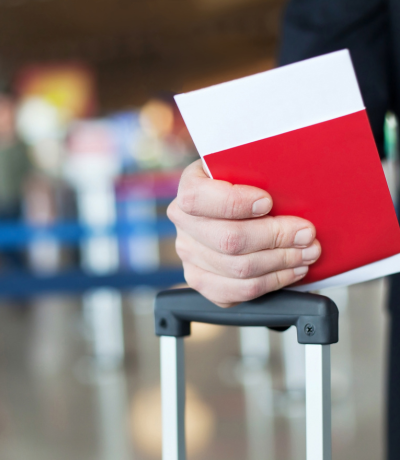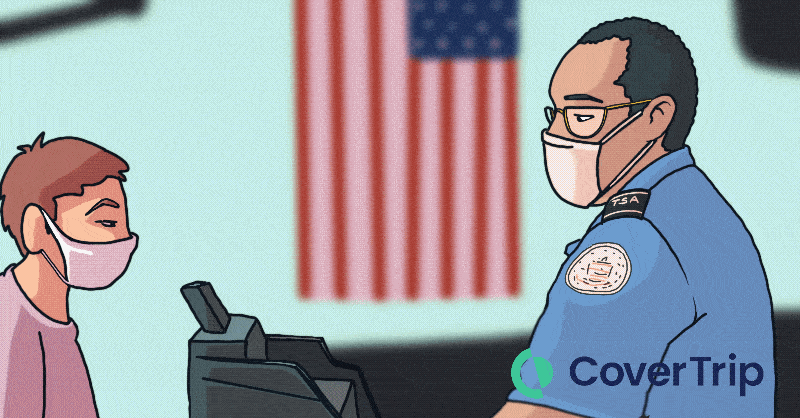Unpacking the latest travel visa rules
1 February 2024
If you hold an American passport, you’re probably used to traveling internationally fairly easily. The pandemic had a devastating effect on worldwide tourism, and it also allowed countries to take a second look at their tourism policies and how they affect the local people who live and work there.
As travel reopened, some of the world’s most popular destinations have become overwhelmed by tourists.
Among other effects, over-tourism has caused:
- Serious environmental degradation: natural landscape damage and wear and tear of historic sites.
- Strained infrastructure: heavy pollution and increased trash.
- Rising living costs for locals: demand for accommodations and services drives up local living costs, making it hard for people to afford living in their own communities.
Some countries will now require American citizens to get a visa, in addition to a passport, to visit as tourists.
Pro tip: Remember that some countries require a visa for certain purposes (like to work or study there) but not for tourism. Additionally, visa policies can vary based on the duration of your visit. If you’re curious, you can read more about the differences between a visa and a passport.
Here’s what you need to know about the new visa requirements for American travelers.

Which countries now require a visa for Americans to visit?
In 2024, the following countries will require US passport holders to apply for a visa:
- Australia
- Bolivia
- Brazil
- China
- Egypt
- India
- Kenya
- New Zealand
- Vietnam
The list above may not be complete because visa requirements change often, and countries occasionally waive the requirement for periods of time (sometimes to encourage tourism).
How do you know if the country requires a visa to visit?
There are two places to look to confirm whether you’ll need a visa to enter another country:
- The US State Department website
- The official website of the country you want to visit
Here’s how you can be certain of your visa requirements.
Step 1: Check the US State Department website
Start with the international travel section of the travel.state.gov website.
- Type in the country name in the search box.
- Look at the quick facts section to see if a tourist visa is required or not.
The website typically links to the official country website where you can learn how to obtain a visa. Because visa requirements change often, I recommend step #2.
Step 2: Check the official country website
The US State Department website may or may not have the latest information about another country’s visa requirements for US travelers, so for that reason, it’s recommended that you also confirm the requirements on the foreign country’s website.
Warning! If you type ‘where do I get a visa to visit australia’ (for example) into any search engine, avoid the Sponsored links at the top of the search results. These links may take you to scam websites .
One of the best websites to look for the most current and accurate information is the US embassy website. The primary purpose of an embassy is to assist American citizens who travel to or live in another country, so it’s their responsibility to know the latest rules.
How do you get the required visa?
In some cases, Americans can apply for the visa in advance, and in others, you can obtain the visa when you arrive.
Here are some examples:
- To visit Australia, you can only apply online.
- To visit Egypt, you can apply online or obtain a visa upon arrival at an Egyptian airport.
Some countries issue e-visas, digital versions of the traditional visa stamped in a passport.
How much does a visa cost?
Typically, you’ll pay a visa processing fee that can be anywhere from $13 to $160. Every country charges a different price.
What is the typical visa processing time?
It can take a few days to a few months to receive a visa, and every country’s processing times are different. Just like the passport processing times in the US, they can get longer when many travelers are applying, so it’s best to start early.
When do airlines want to verify the visa?
Just like your passport, the airline will let you purchase a flight, and the agents will verify your visa at check-in. If a visa is required to enter the country, you may not be able to get a boarding pass until you confirm that you have the visa.
That means you may need to arrive at the airport earlier than you normally would; however, some of the airline apps are getting smarter about being able to collect and store passport and visa images.
How long is the visa in effect?
Tourist visas can be in effect for weeks or months. Be sure to check how long the visa will be in effect, especially if you are planning a more extended visit.
Related topics
Damian Tysdal is the founder of CoverTrip, and is a licensed agent for travel insurance (MA 1883287). He believes travel insurance should be easier to understand, and started the first travel insurance blog in 2006.
